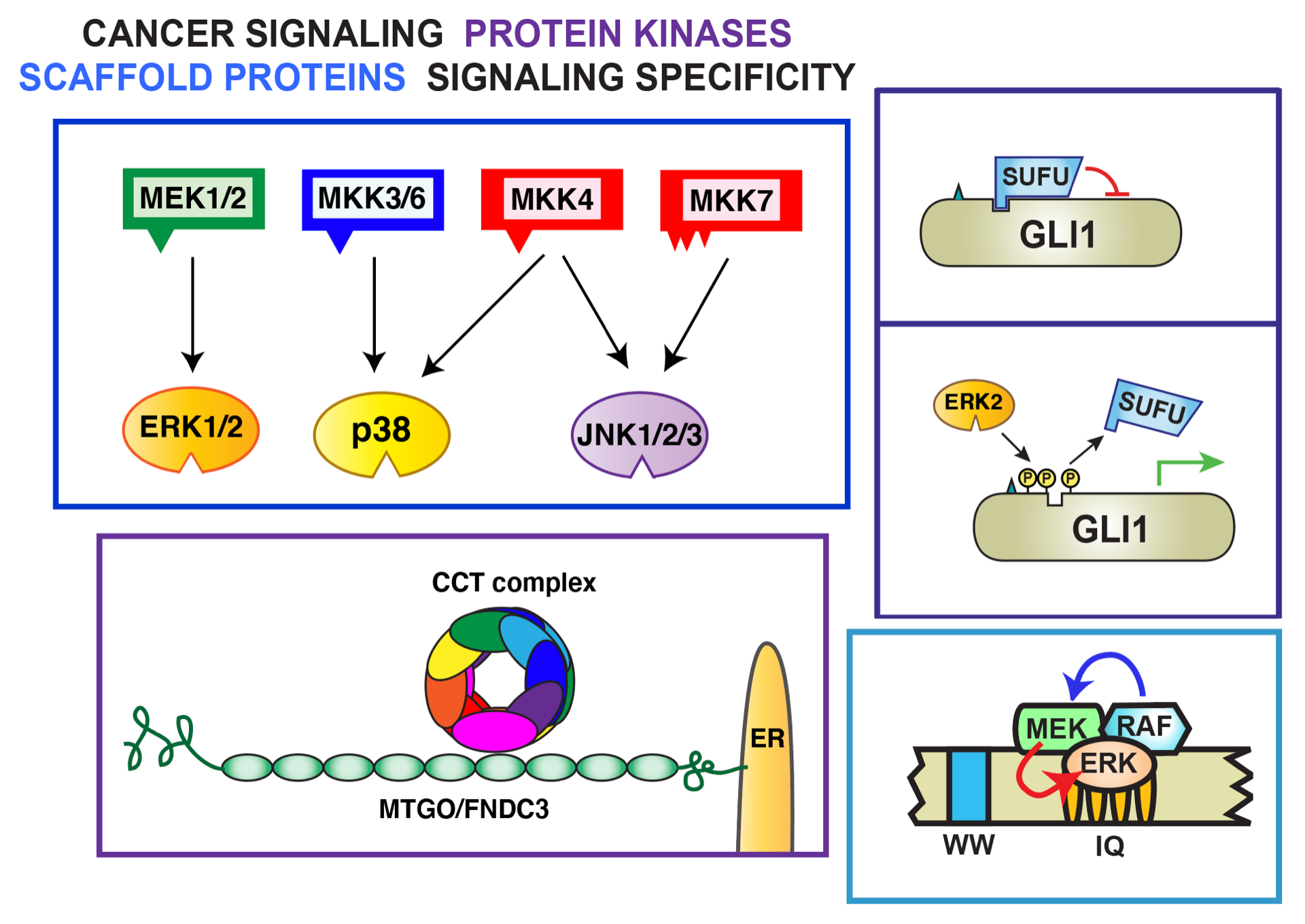Bardwell Lab
- University of California, Irvine
- Charlie Dunlop School of Biological Sciences
- Department of Developmental and Cell Biology
- Professor Lee Bardwell, Ph.D.
Research Interests
Cell Signaling – We study evolutionarily-conserved and disease-relevant cell signaling pathways, focusing on the following questions:
- How do protein kinases find their substrates? Can we use this knowledge to identify new substrates and regulatory strategies, and to find new ways to treat cancer and other diseases?
- How is specificity from signal to cellular response maintained when networks are highly interconnected, and different pathways use similar or overlapping components?
- What evolutionary logic underlies the structure of signaling and gene regulatory networks? Why are they so complicated and interconnected? What performance objectives might these designs achieve?
- Can we combine biochemistry, genetics, math/computation and cutting-edge imaging to visualize, model and understand what really happens in space and time during intracellular signal transduction?
- How can we translate our increasingly sophisticated systems-level understanding of regulatory processes into new ideas for treating human disease?
We use an interdisciplinary approach, combining techniques from molecular cell biology, biochemistry and biophysics, genetics and genomics, and mathematical & computational biology and engineering to address these questions.
Our present emphasis is on mitogen-activated protein kinase (MAPK) signaling pathways. MAPK cascades participate in the regulation many biologically (and medically) important processes, including normal and pathological aspects of cell growth, division, differentiation, and death. The ubiquity and versatility of MAPK cascades make them ideal for addressing the questions we are interested in.
